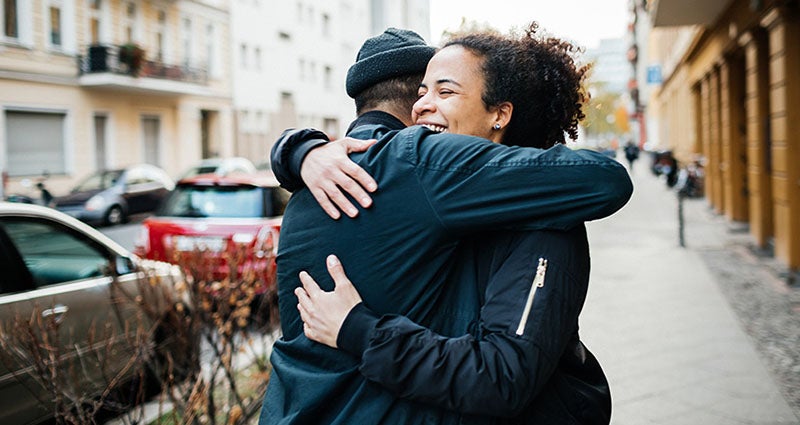Better together: how social connections affect total wellness

By nature, we are social beings. We all have a desire to know and be known. When we have strong social connections, we make better choices and have better mental and physical health outcomes.1 And, research shows that social isolation can have a negative impact on health. It can increase our risk of earlier death, depression, anxiety, dementia, heart disease and stroke.2
What exactly is social connection?
Social connection can be described as the experience of being cared for, valued and having a sense of belonging with others.1 When we have people in our lives who support us, we’re more likely to make healthy choices. These people can include family, friends, community members and co-workers—or anyone else you share a healthy bond with.
How are you enjoying your free time? How much fun are you having? Who are you spending time with? Strong social connections can help you feel good. But, more than that, they can lead to longer life, better health and improved well-being. Stronger social connections can result in:3
- Lower stress levels
- Higher quality of life and sense of belonging
- Better sleep
- Healthier habits and behaviors
- Reduced risk of developing dementia
- Increased longevity
There is even a relationship between loneliness and heart health. Loneliness is associated with a 29% increase in heart disease risk.3
The thought of making social connections may sound too difficult. It’s OK if it doesn’t come naturally to you. If this is the case, know you’re not alone. Our Mental Health service can help. It’s confidential, and you can also use it from the comfort of your home.
Learn more about our Mental Health service.
How do you get well socially?
There are many things you can do to improve your social connections. Here are just a few:
- Initiate the invite! Start inviting people in your world to meet. Set up a walk, coffee date, lunch, etc. Think about those who may enjoy a similar hobby. Then, reach out to do the hobby together.
- Practice good self-care. Get good rest, eat healthy foods, exercise and make time to do what makes you happy. When you’re feeling well, you will be more likely to want to engage with others.
- Sign up to do something new. Check out your area’s Parks & Recreation calendar for activities. Take a cooking class. Join a book club. Attend a play. Google something you’d like to try and see what’s available near you!
- Try to have in-person contact when possible. A simple hug can help you feel better by stimulating the release of feel-good hormones and reducing stress hormones.4 Don’t rely on technology to keep you socially connected. Try to have face-to-face contact, as well.
How to stay socially well
As you become more social, make sure to practice boundaries. Boundaries tell people who you are, what you will accept and won’t accept. It’s OK to say no sometimes. People who respect your boundaries can be great social connections for years to come.
Want more help making social connections? Talk with a professional. Get one-on-one support with a therapist. Ninety percent of people who used our Mental Health solution said it helped them feel better.
Don't get lost in loneliness. Tackle it head on.
1https://www.cdc.gov/emotional-wellbeing/social-connectedness/affect-health.htm
2https://www.cdc.gov/emotional-wellbeing/social-connectedness/loneliness.htm
3https://www.cdc.gov/emotional-wellbeing/features/power-of-connection.htm
4https://www.psychologytoday.com/us/blog/everyone-top/202108/the-vital-importance-human-touch
Was this article helpful?
Don't wait! Unlock a healthy, happy new year, at no cost to you.
This content is not intended to be a substitute for professional medical advice, diagnosis or treatment. Always seek the advice of your physician or other qualified health provider with any questions you may have regarding a medical condition.
